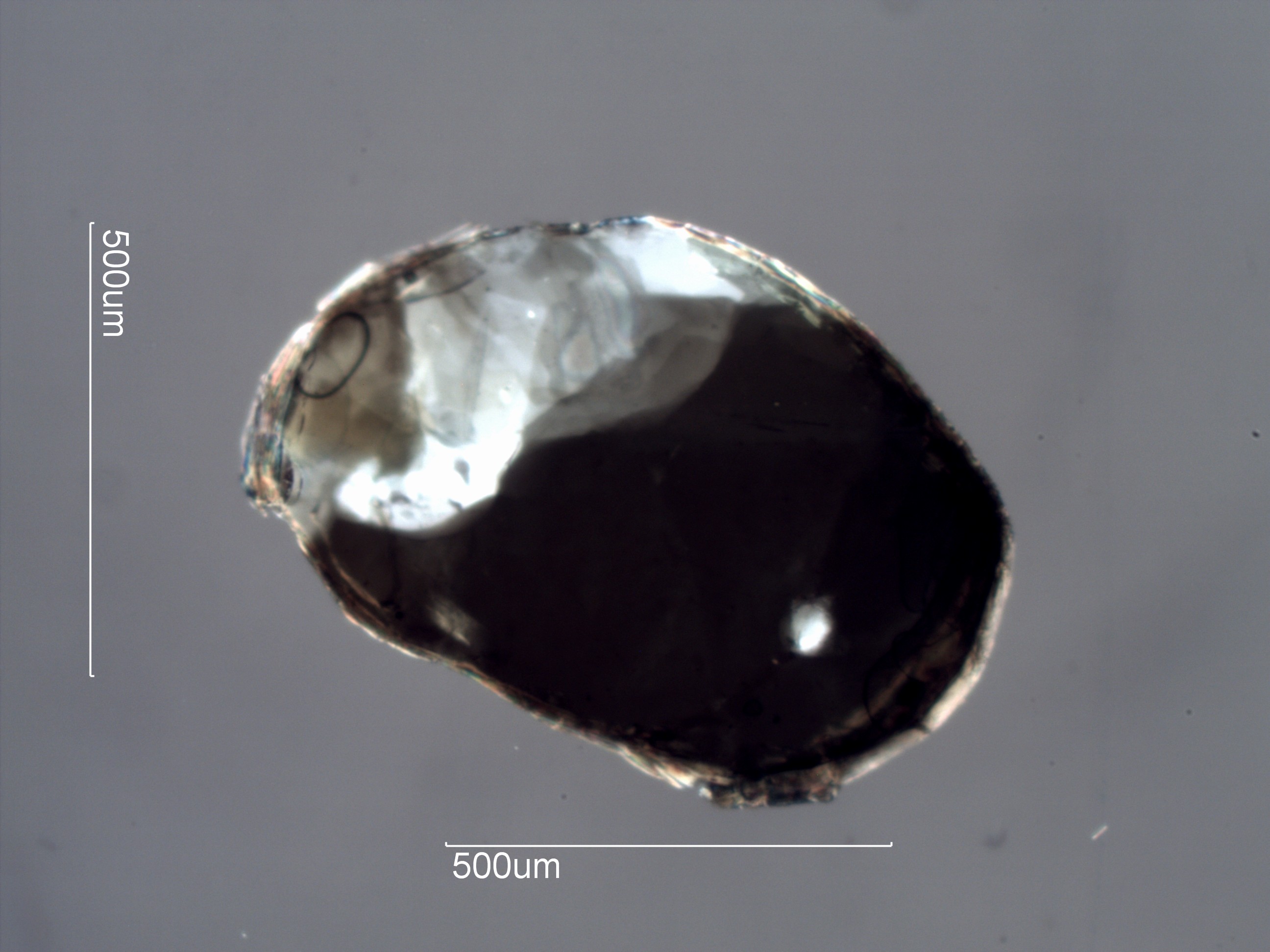Mica, Biotite
This is one of the mica minerals in the sand from the Palm Desert area. This grain has a 2V of about 0 degrees in the dark area (biotite) and about 45 degrees in the bright area (muscovite).
Definition/Function:
Biotite is a sheet silicate with the general chemical composition indicated as
K2(Mg,Fe2+)6-4(Fe3+,Al,Ti)
0-2[(Si6-5Al2-3)O20](OH,F)4.
It is a very common mineral.
Muscovite is a sheet silicate with the general chemical composition indicated as
K2Al4
[(Si6Al2)O20](OH,F)4. It is a very
common mineral.
Significance in the Environment:
Characteristic Features:
Biotite is dark green or Brown most often in thin section, has a 2V of 0-15 degrees, a birefringence of about 0.001 when view normal to its perfect cleavage plane, and has a negative optical sign. Biotite is the more iron-rich part of the phlogopite-biotite series. With more titanium the crystal becomes more reddish.
Muscovite is colorless in thin section, has a 2V of 28-47 degrees, a birefringence of about 0.005 when view normal to its perfect cleavage plane, has a negative optical sign.


